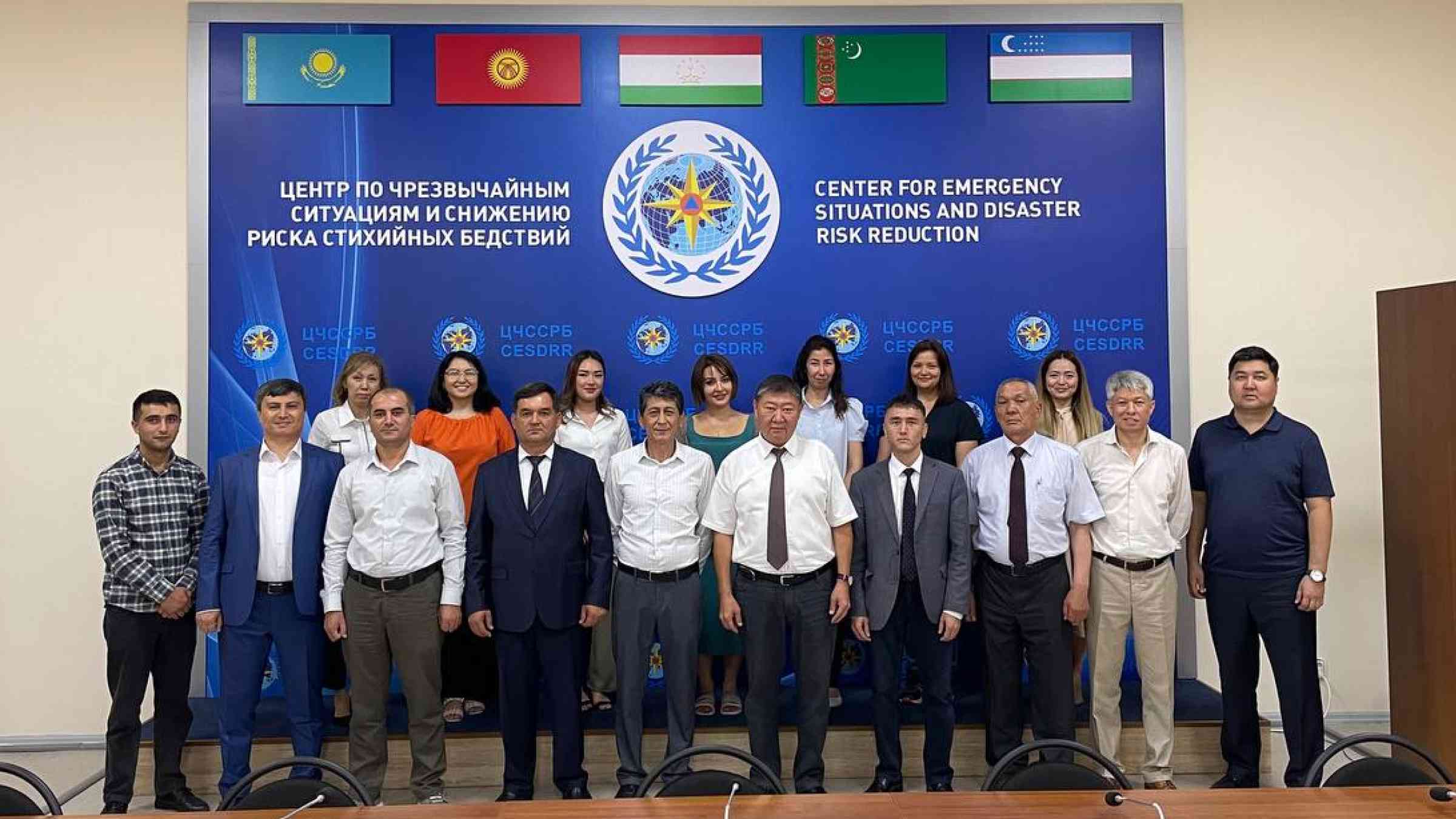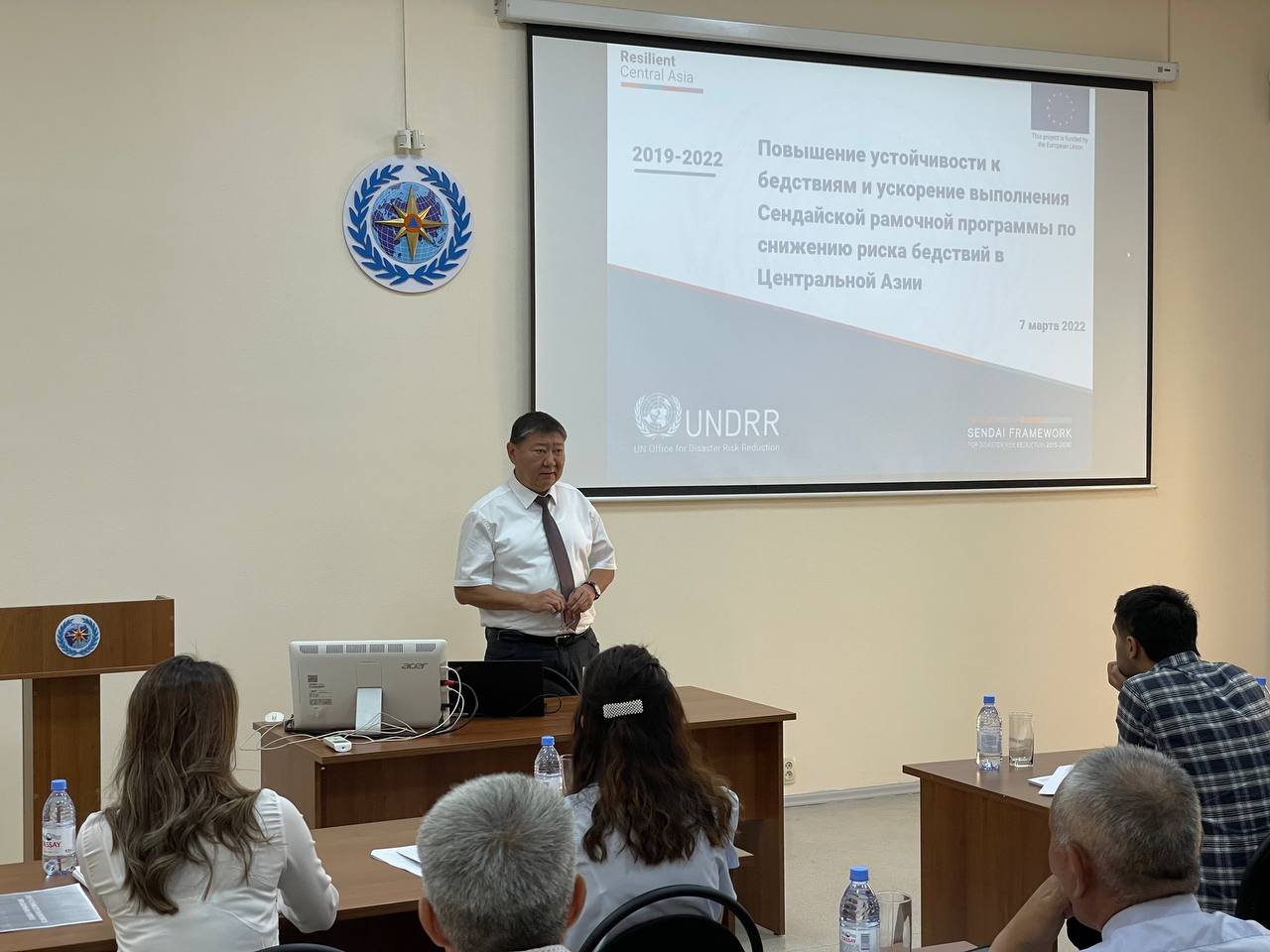European Union-funded project helps to make Central Asian cities safer and sustainable

Almaty – Local administrations of 9 Central Asian cities have been introduced today to the Making Cities Resilient 2030 (MCR2030) global initiative, which helps to access and prevent disasters and create safe and sustainable conditions for city residents. The workshop was funded by the European Union (EU) and organized by the United Nations Office for Disaster Risk Reduction (UNDRR) within the joint project on disaster risk reduction in Central Asia.
The current rate of urbanisation is unprecedented, with around 60% of the global population expected to be living in cities by 2030. At the same time, the frequency and intensity of disasters have drastically increased in the past years, and if the trend continues, the number of disasters per year may increase from around 400 in 2015 to 560 per year by 2030. Cities are often at the forefront when disasters occur. The impact of disasters in cities as the centers of economic, political, and cultural activity can have far-reaching consequences. The MCR2030 initiative works to strengthen local resilience and support municipalities in the development and implementation of resilience strategies.
The workshop participants were introduced to the MCR2030 toolkit, including the Disaster Resilience Scorecard for Cities for assessing resilience and developing local strategies for disaster risk reduction. They also learned about available risk information, including the subregional INFORM Index for Central Asia, and how such data and information can support better planning and decision-making for improved disaster resilience.

Mr. Serik Aubakirov, CESDRR Deputy Director, speaking to participants
As a next step, city administrations will be invited to join the MCR2030 initiative and to make use of its instruments, network and partners in supporting their journey to strengthen resilience to disasters.
Mr. Johannes Stenbaek-Madsen, Head of Cooperation, the EU Delegation to the Republic of Kazakhstan said: “The EU Delegation to the Republic of Kazakhstan welcomes the concrete steps taken by Central Asian governments to establish national platforms, develop disaster management plans and disaster risk reduction strategies, as well as jointly agreed measures to strengthen regional and international cooperation.”
Mr. Abdurahim Muhidov, UNDRR Regional Programme Coordinator, highlighted: “The theme of city resilience refers to the residents and the infrastructure they rely on: their houses, schools, workplaces, transportation, communications, water, electricity, governance, safety and security, and many other spheres. UNDRR encourages to include the elements of resilience in general development plans, to protect the city systems from hazards, and to protect the environment from any harm that urbanized territories can cause.”
Background information
The EU-funded project “Strengthening disaster resilience and accelerating the implementation of Sendai Framework for Disaster Risk Reduction in Central Asia”, implemented by the United Nations Office for Disaster Risk Reduction (UNDRR), supports countries of the region in implementing the Sendai Framework priorities. The project supports strengthening regional coordination, development of regional DRR strategy, national disaster loss accounting systems, and community-level disaster risk reduction. On the local level, the project supports the development of disaster resilience strategies of capital cities. For this project, the EU committed EUR 3,750,000 for the three-year implementation.
Making Cities Resilient 2030 (MCR2030) is a unique global cross-stakeholder initiative improving local resilience by making cities safer, preventing risks, and promoting innovation and investments. Building on the Making Cities Resilient Campaign which began in 2010, MCR2030 welcomes cities, local governments as well as any other parties wishing to help cities prosper through advocacy, knowledge-sharing and city-to-city networks. In Central Asia the MCR2030 initiative engages with the capital cities of Central Asia with the aim to support local governments to reduce risks and advance a holistic and systemic approach to urban resilience.
For additional information please contact:
Mr. Abdurahim Muhidov, UNDRR Regional Programme Coordinator, at: muhidov@un.org
Delegation of the European Union to Kazakhstan, at: delegation-kazakhstan-pic@eeas.europa.eu